
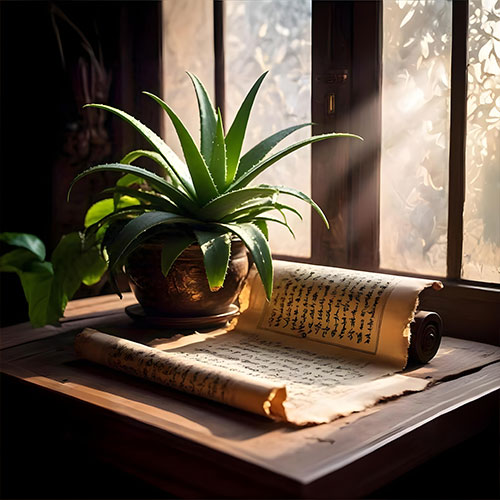
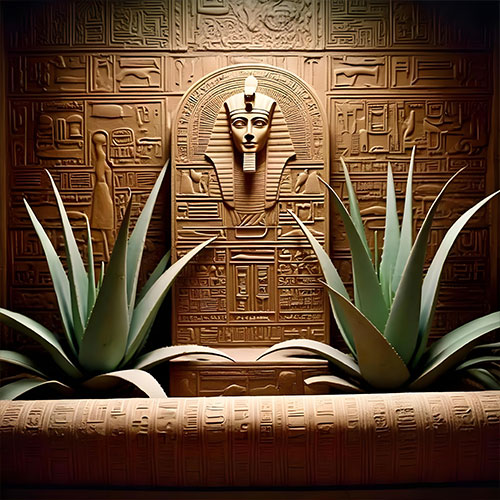
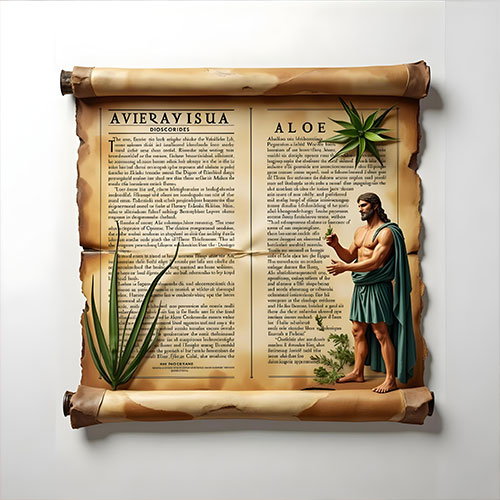
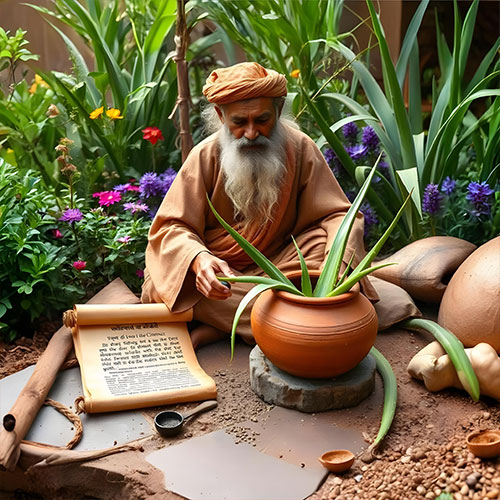
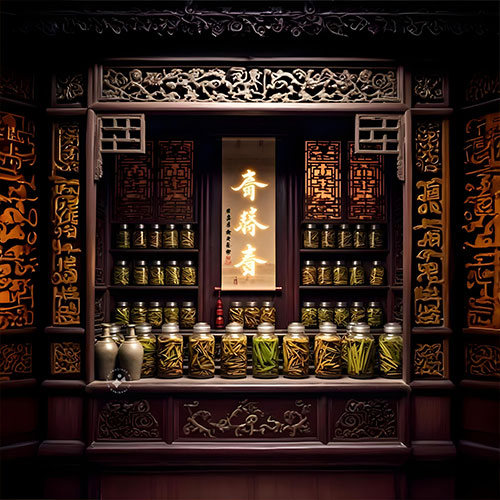
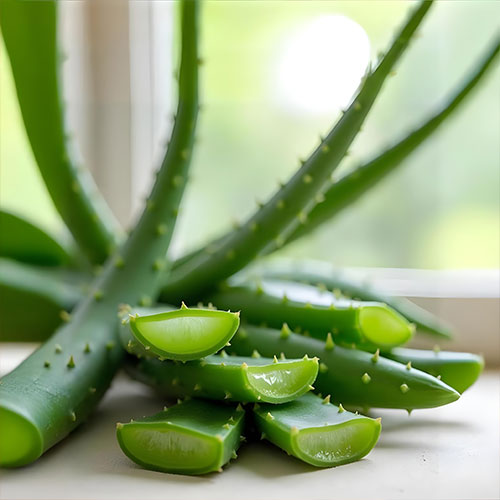
Aloe vera, celebrated for its versatility and healing properties, has etched its presence in human history as a muse in art, a trusted remedy in medicine, and a symbol of wellness in literature. Its significance transcends cultures and eras, leaving an indelible mark on ancient civilizations worldwide.
In the heart of ancient Egypt, aloe vera earned the title of the "plant of immortality." Esteemed for its therapeutic qualities, it was prominently featured in Egyptian medicine and rituals. The Ebers Papyrus, an ancient medical text dating back 3,500 years, documents aloe vera’s extensive use. Egyptians utilized its gel to treat skin ailments, soothe digestive issues, and even address eye infections. Beyond its medicinal applications, aloe vera was integral to embalming processes and beauty regimens, epitomizing its status as a symbol of eternal life and health.
The Greeks and Romans were equally captivated by the healing powers of aloe vera. Renowned figures such as Dioscorides, a Greek physician, and Pliny the Elder, a Roman author, extolled its virtues in the 1st century CE. Aloe vera was hailed for its ability to heal wounds, soothe burns, and aid digestion, making it a staple in their medical practices. Ancient texts from this era highlight how aloe vera’s therapeutic properties were harnessed to address a wide array of health concerns, cementing its reputation as a medicinal marvel.
In India, the ancient science of Ayurveda embraced aloe vera as a cornerstone of holistic healing. Known as "Kumari" in Sanskrit, which translates to "young maiden," it symbolized youthful vitality and rejuvenation. Ayurvedic practitioners lauded aloe vera for its skin-rejuvenating, digestive-cleansing, and fever-relieving properties. Its multifaceted benefits ensured its enduring role in Indian medicinal traditions, where it was used in herbal formulations to promote balance and overall well-being.
In the realm of traditional Chinese medicine, aloe vera was revered for its cooling and detoxifying properties. Ancient Chinese herbalists incorporated aloe vera into remedies to treat skin conditions, alleviate inflammation, and enhance digestion. Its ability to restore balance and harmony within the body made it a cherished component of Chinese herbal heritage. Even today, the legacy of aloe vera in Chinese medicine continues to inspire modern wellness practices.
From the sands of Egypt to the philosophies of Ayurveda and the herbal wisdom of China, aloe vera’s story is a testament to its universal appeal and enduring value. Its journey through ancient art and literature underscores its timelessness, connecting us to a rich tapestry of cultural and medicinal traditions that continue to shape our understanding of wellness today.